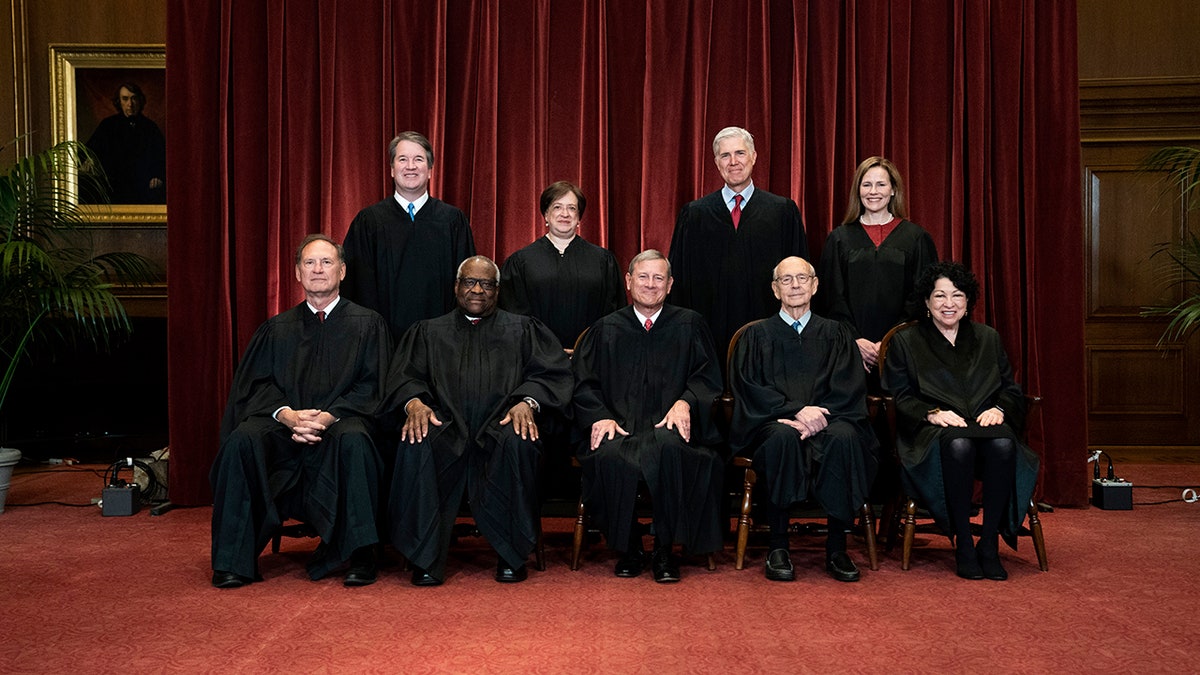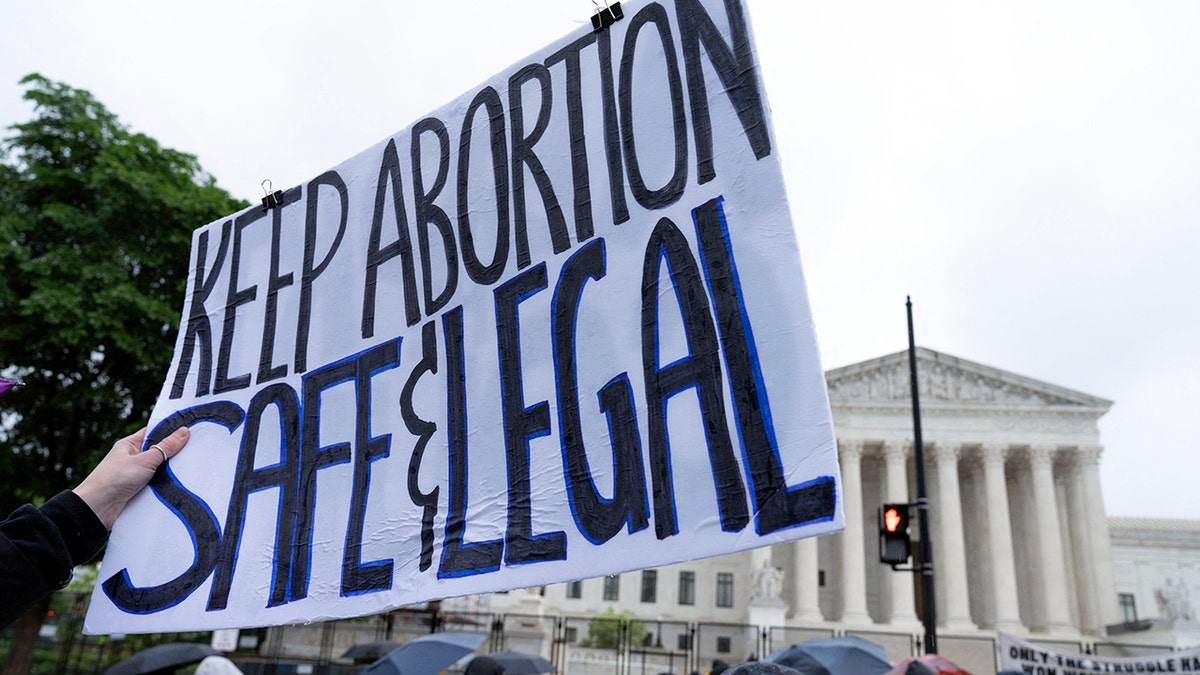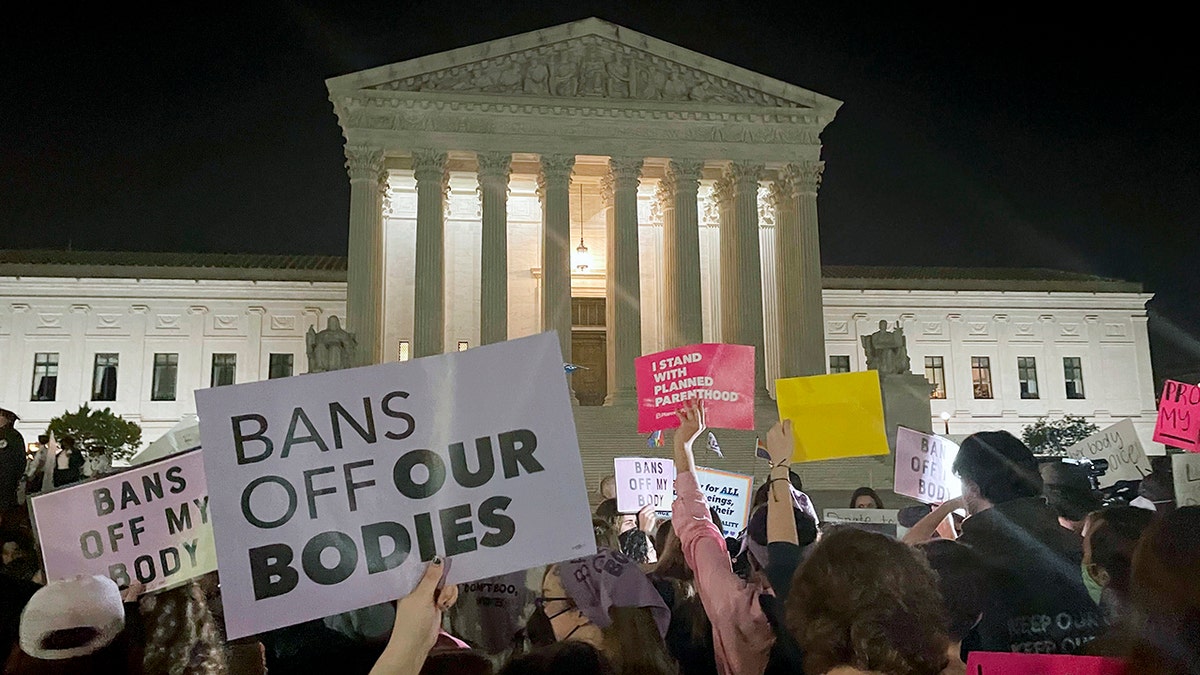Supreme Court leak is an ‘unforgivable sin’: Barr
Former Attorney General Bill Barr argues ‘criminal punishment’ is necessary for the perpetrator of the Roe v. Wade draft opinion leak, unpacks ramifications of the leak and the court’s decisions.
The New York Times editorial board suggested in a new essay about the potential end to Roe v. Wade suggested Friday that some states still "probably wouldn't" permit interracial marriage.
"Imagine that every state were free to choose whether to allow Black people and white people to marry," the editorial board wrote. "Some states would permit such marriages; others probably wouldn’t. The laws would be a mishmash, and interracial couples would suffer, legally consigned to second-class status depending on where they lived."

FILE - In this April 23, 2021, file photo members of the Supreme Court pose for a group photo at the Supreme Court in Washington. (Erin Schaff/The New York Times via AP, Pool) (AP)
The board noted the 1967 ruling by the Supreme Court that said banning interracial marriage was a violation of the 14th amendment. The piece also said that Alabama did not remove the law from their books until 2000.
The authors argued that the Supreme Court "exists to protect those rights when state and local authorities refuse to," referring to the leaked Supreme Court opinion from Dobbs v. Jackson Women's Health Organization, which seemed to signal the court was getting ready to overturn Roe v. Wade. Supreme Court Justice Samuel Alito's draft opinion was first published by Politico on May 2.

Pro-abortion demonstrators rally for abortion rights in front of the US Supreme Court in Washington, DC, on May 7, 2022. (Photo by Jose Luis Magana / AFP) (Photo by JOSE LUIS MAGANA/AFP /AFP via Getty Images) (Photo by JOSE LUIS MAGANA/AFP /AFP via Getty Images)
The board argued that leaving matters like interracial marriage or abortion to the states means that "millions of Americans will be denied their fundamental rights."
"In short, constitutional rights are meaningless unless they apply across the entire country," the editors wrote. "That is why the Supreme Court decided Loving v. Virginia and Roe v. Wade as it did. These rights are inherent in the Constitution, even if they are not explicit in it."
The authors argued that the many efforts by states to either protect abortion access or ban abortions show the need for a "national standard."
The draft opinion said that "it is time to heed the Constitution and return the issue of abortion to the people’s elected representatives."
SUPREME COURT SET TO OVERTURN ROE V. WADE, LEAKED DRAFT OPINION SHOWS: REPORT
Nate Hochman, an ISI fellow at the National Review, responded to the editorial board's piece on Twitter.
"I'm sorry but which state in America would actually opt to ban interracial marriage in the Year Of Our Lord 2022," he wrote.

A crowd of people gather outside the Supreme Court, Monday night, May 2, 2022 in Washington following reports of a leaked draft opinion by the court overturning Roe v. Wade. (AP Photo/Anna Johnson)
The popular Twitter account AGHamilton29 responded to Hochman's tweet and said that the assertion was "insane," saying that it was a "direct result of NYT pretending the people they disagree with politically are racist. The account included a link to a Gallup poll from 2021 that found 94% of Americans, compared to just 4% of people that supported it in 1958.
CLICK HERE TO GET THE FOX NEWS APP
"NYT editorial on Roe v. Wade begins by falsely claiming states today would ban interracial marriage," D.C. Examiner reporter Jerry Dunleavy reacted. "A desperate slippery slope argument & a ridiculous comparison, because marrying the person you love & killing an innocent unborn child are hardly similar."
Podcast host Noam Blum criticized the board's claim as well, saying that it was an easy one to make "if you don't mention any states specifically because perhaps the actual numbers on it will kneecap" the argument.










































